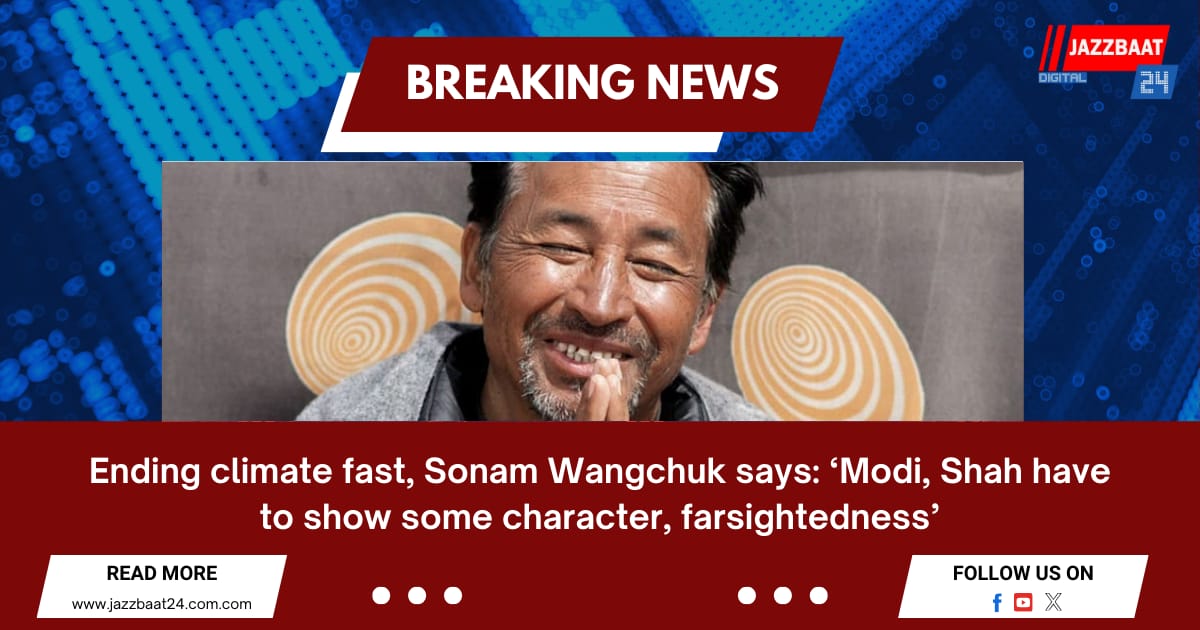Renowned environmentalist Sonam Wangchuk, known for his innovative solutions and activism, has ended his climate fast with a powerful message directed at India's top leadership. Wangchuk emphasized the urgent need for Prime Minister Narendra Modi and Home Minister Amit Shah to demonstrate character and farsightedness in tackling the looming climate crisis.
During his climate fast, Wangchuk garnered widespread attention and support for his commitment to raising awareness about the urgent need for climate action. His decision to end the fast serves as a symbolic gesture aimed at urging the government to prioritize environmental sustainability and take decisive steps to combat climate change.
In his statement, Wangchuk underscored the critical role that political leadership plays in addressing environmental challenges. He called upon Prime Minister Modi and Home Minister Shah to exhibit courage and vision in implementing policies that prioritize environmental conservation and sustainable development.
Wangchuk's appeal comes at a time when the world is facing unprecedented environmental threats, including rising temperatures, extreme weather events, and biodiversity loss. The impacts of climate change are already being felt across the globe, posing significant risks to ecosystems, economies, and human well-being.
India, as one of the world's largest and fastest-growing economies, has a crucial role to play in mitigating climate change and transitioning to a more sustainable future. Wangchuk's call for leadership resonates with millions of citizens who are increasingly concerned about the environmental challenges facing the country and the world.
Furthermore, Wangchuk's message highlights the need for policymakers to adopt a holistic approach to addressing climate change, encompassing mitigation, adaptation, and resilience-building measures. This requires bold and decisive action across various sectors, including energy, transportation, agriculture, and urban planning.
As citizens, there is a call to action to hold elected leaders accountable for their actions and decisions regarding climate change. Wangchuk's appeal serves as a reminder of the collective responsibility we all share in safeguarding the planet for future generations.
In conclusion, Sonam Wangchuk's call for leadership on climate change sends a powerful message to India's political leadership and citizens alike. As we navigate the challenges posed by climate change, it is imperative that we come together to demand decisive action and champion sustainable solutions. The time for complacency is over; the time for bold leadership and collective action is now.

